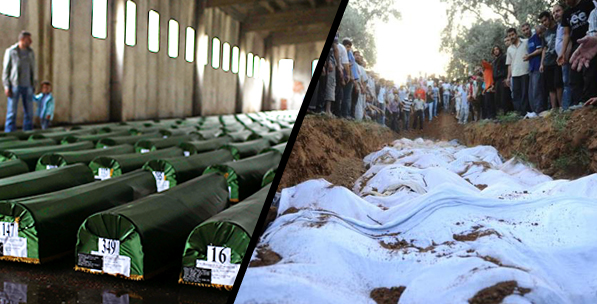The Arab Spring arrived 10 years after George W. Bush declared the advent of the "war on terror". The events of September 11 allowed the Bush administration to launch a crusade at home and abroad, pledging to destroy "terrorism" wherever it may be and imposing an ultimatum on state-counterparts through the US president's infamous doctrine, "Either you are with us or you are with the terrorists."
Since January 2011, Arab regimes have also employed the terrorism card to maintain their grip on government. While power dynamics are shuffling in the region, the struggle for change naturally collides with a taxing resistance by those who refuse to accept that the status quo cannot prevail. While much debate around the Arab Spring deals with assessing whether it is a success or a failure, little time has been spent evaluating what factors, if transferred to the long term, have the potential to undermine the struggle of the Arab street.
One of these harmful elements is the appropriation of Bush's war on terror by regional actors. A campaign constructed with content determined strictly by and from "the West", the use of the war on terror in the Middle East by Arab leaders is hijacking a crucial and historic moment in the Arab World. As such, it blocks the way to any real power shift emerging from the Arab Spring.
The appropriation of the war on terror is fine-tuned with Frantz Fanon's concept of "misrecognition". By this Fanon implied the internalisation by the native of the image that the colonial power constructed of, and imposed upon, him. In this case, the image created for an Arab is that of a terrorist; an angry, violent actor due to his barbaric, uncivilised Islamic roots. Interestingly, Arab leaders have been articulating this very same colonial fabrication against their own citizens. Among others, Gaddafi's Libya, Egypt under both Mubarak and Sisi, Baathist Syria, Yemen, Bahrain and even the Palestinian Authority have all attempted to benefit from it by self-proclaiming themselves as saviours or the West's partners in a phoney war against terrorism.
In Libya, Gaddafi pushed a notoriously violent campaign against "the terrorist", targeting especially the towns hosting revolutionaries. The old regime claimed repeatedly that the Libyan Revolution was spearheaded not by freedom seekers but by Al-Qaida militants seeking to create an Islamist state. Gaddafi even flirted with fascist discourse in one of his last speeches: "I call upon millions from desert to desert. We will march to purge Libya inch by inch, house by house, alley by alley."
In March 2011, after more than a month of street protests in Yemen calling for Ali Abdullah Salih to resign, the president also played the Al-Qaida card. He claimed that terrorists were taking advantage of the political unrest to carry out further attacks against the Yemeni government and foreign interests in the country.
In the same vein, General Sisi has portrayed himself as a guru for anti-terrorism efforts. Terrorism in Egypt, in Sisi's mind, is a product of the Muslim Brotherhood and its supporters. On June 30, Sisi called for big demonstrations so that people could give the military a "mandate" to wage a "war on terror". In effect, he tried to legitimise his military coup through "war on terror" rhetoric. As Sisi's military administration continued its persecution of anti-coup Egyptians by the thousands, the handy appropriation of "anti-terrorism" action helped Sisi's forces in their bloody crackdown. This misrecognition in Egypt betrays the very essence of the Arab Spring as, for Egyptians, the January 25 Revolution was partly about destroying the permanent state of emergency that the Mubarak regime had put in place for three decades. Even more tragic is the Saudi King Abdullah's open support for the Egyptian junta by using the very same justification: "the fight against terrorists". Here, King Abdullah borrows the war on terror once again in order to frame any type of opposition to the regional status quo, within or without his borde







